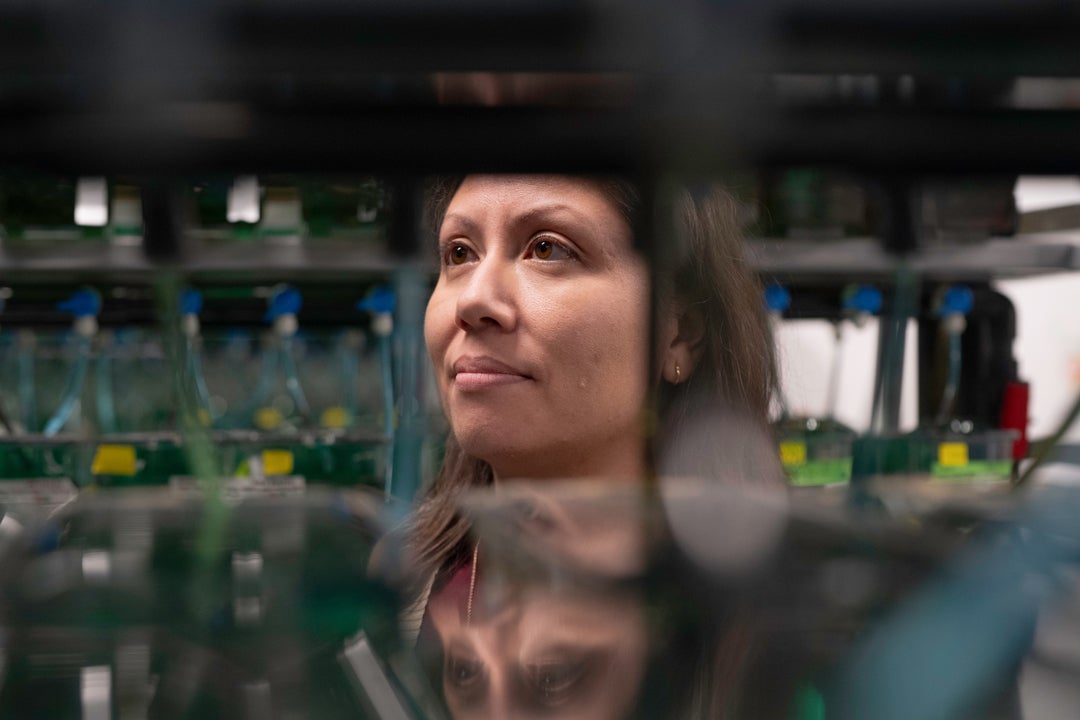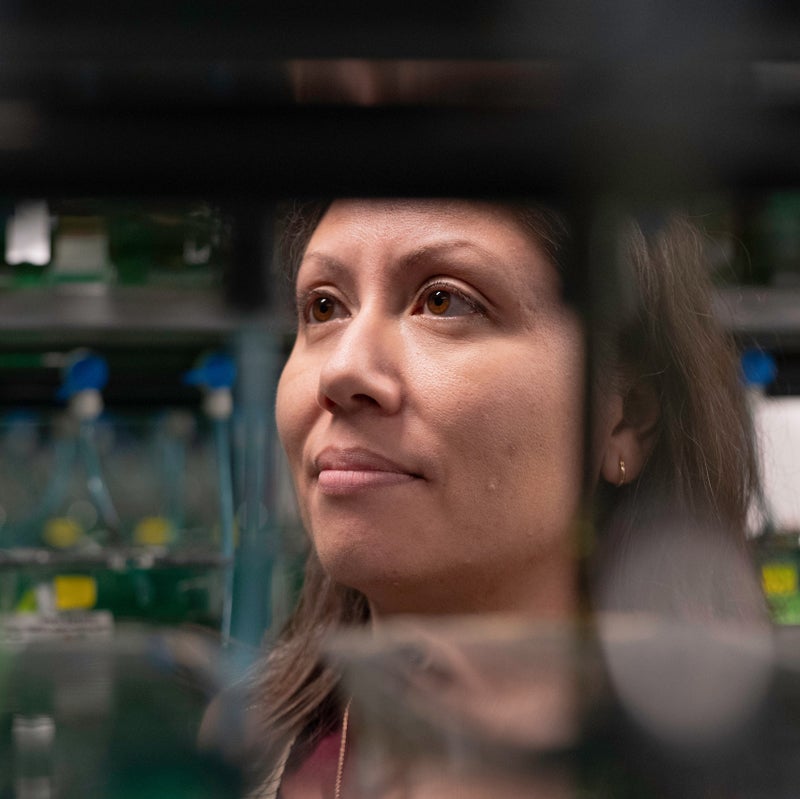
Initially on a pre-med track, Rosa Uribe had never considered a career in research until a genetics course at San Francisco State University completely reshaped her perspective. “The professor completely blew my mind with his knowledge and the way he handled the subject matter,” she recalled. But what captivated her even more was a developmental biology class he taught, where he discussed using fruit flies to understand wing patterns.
“At the time, I had no idea students could work in research labs,” Uribe admitted. Driven by her newfound curiosity, she asked if she could observe some of the scientists in his lab. To her surprise, he laughed and told her that students were already a part of his research team. “I ended up working in that lab, which was a classic developmental biology lab looking at how signaling pathways orchestrate cell-fate decisions in a developing progenitor field of tissue.”
“After that, I was hooked,” Uribe said. “I completely ditched the idea of med school and decided really quickly that I was going to switch gears and apply to graduate school and a Ph.D. program.” This decision led her to the University of Texas at Austin, where she transitioned from studying fruit-fly wing patterning to exploring retinal development in zebrafish models. Her interest in developmental biology deepened even further during her postdoc at Caltech, as she learned more about neural crest cells — a stem-cell population that migrates extensively over the developing embryo and can differentiate into a wide variety of cell types.
Now an associate professor at Rice, Uribe leads a research group dedicated to studying how neural crest cells differentiate into gut neurons. Their work sheds light on the formation of the enteric nervous system, the largest division of the peripheral nervous system, which governs gut function and is critical for digestion.

Ultimately, Uribe seeks to increase understanding of the signaling and genetic mechanisms responsible for regulating cell-fate determination and migration of neural crest cells during peripheral nervous system development. This knowledge could prove invaluable in the development of regenerative treatments for cancers and neural crest-derived diseases, known as neurocristopathies. Hirschsprung disease, a congenital disorder affecting one in 5,000 infants worldwide, is one example of this type of disease. It occurs when parts of the nervous system in the gut fail to develop properly, resulting in impaired gut motility and severe digestive complications.
Using zebrafish models and genetic tools like CRISPR, Uribe’s team studies the genes and signaling pathways underlying these developmental processes. They can also track the movement of neural crest cells in real time by tagging them with fluorescent proteins, which can be visualized through microscopy. “By pairing this method together with mutant analysis and other drug perturbations,” Uribe explained, “we can start to piece together how these diseases might be happening.”

One of the lab’s most surprising recent discoveries involves the opioid signaling pathway. “We had no idea that the opioid pathway was even expressed in these stem cells until we did RNA sequencing experiments,” Uribe said. The experiments revealed highly enriched genes in the cell population indicative of opioid receptors.
“Using CRISPR and pharmacological analysis to target these opioid receptors, we found clear defects in neural development,” she said. This led to the discovery of the opioid signaling pathway’s important role in the decision of neural crest cells to turn into a specific type of neuron along the gut. This unexpected link could open new avenues for understanding neural differentiation and developing regenerative medicine strategies.
Beyond her research, Uribe finds great fulfillment in mentoring students. “That was my number one priority when looking for a faculty position,” she said. “I wanted a lab with both undergraduates and Ph.D. students. Watching them grow as scientists is one of the most rewarding parts of my job.”
For Uribe, being a principal investigator is about more than just running a lab — it's about inspiring curiosity in the next generation of scientists and helping contribute to a collaborative academic environment on campus. “I wanted to be a PI ever since undergrad,” she reflected. “It’s the perfect blend of research, mentoring and university culture. I wouldn't trade it for anything.”
-Niamh Ordner ’26

